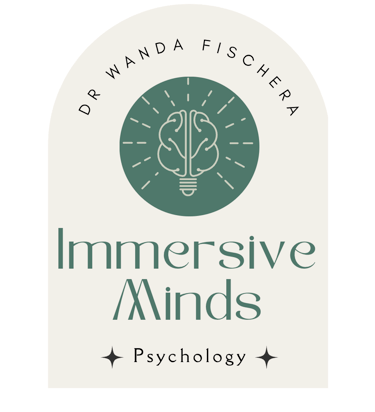Therapy for Sleep difficulties and Insomnia
Read about therapy for Sleep Difficulties and Insomnia for people with Maladaptive Daydreaming


Sleep issues are one of the most common—but also most distressing—concerns for people living with maladaptive daydreaming.
You may find yourself lying awake at night, unable to switch off your inner world, or you may drift into immersive fantasies. For some, the evening or bedtime is "prime MD time" when the inner world becomes most compelling—there’s finally space to retreat inward. Unfortunately, this can come at the cost of restful sleep. Over time, this can lead to chronic sleep difficulties or insomnia, leaving you feeling foggy, disconnected, or out of sync with the world, which in turn makes it more difficult to reduce daydreaming and be present. For a lot of people with MD, as the the daydreaming habit has been life-long, it is accompanied by a life-long sleep difficulty.
You may:
Use daydreaming as a coping mechanism for nighttime anxiety, loneliness, or overstimulation
Lose track of time while immersed in fantasies late into the night
Experience racing thoughts or difficulty switching off the “storyline” when trying to fall asleep (or finding it hard to want to stop daydreaming due to the yearning)
Wake up feeling unrefreshed or emotionally disconnected from your real-life priorities
Waking up early to immerse yourself in daydreaming
Insomnia and sleep difficulties are not just physical issues—they’re often tied to emotional regulation, habits, and the deeper role that daydreaming plays in your life. Therapy can help you explore this gently and at your own pace.
As a Clinical Psychologist and MD researcher, I understand the unique ways in which daydreaming and sleep can become tangled. Whether you’re ready to reduce your daydreaming or just want to understand it better, therapy offers a safe space to reflect, explore, and develop new ways of relating to both your inner world and your sleep routine.
I draw on a range of evidence-based approaches depending on your needs:
CBT for insomnia (CBT-I), when appropriate, to support structured sleep behaviour change
Emotion-Focused and Relational approaches to explore what’s underneath your nighttime distress or reliance on daydreaming
Motivational Interviewing to gently explore ambivalence about change
Mindfulness and regulation-based strategies (e.g., DBT skills) to support your nervous system at night
Attachment-informed exploration if sleep difficulties feel rooted in earlier experiences of safety, connection, or aloneness
Our work might include:
Understanding your daydreaming patterns and their role in your evening routine
Building a simple, more emotionally safe and sustainable wind-down process that feels manageable
Creating meaningful changes to your day-to-day life so the nighttime escape becomes less necessary
Addressing co-occurring concerns such as anxiety, shame, low mood, or stress
A Compassionate Approach—No Pressure, No Rush
If you're not ready to let go of your daydreaming—or even unsure if you want to—that’s okay. Therapy isn't about forcing change. It’s about creating space for curiosity, compassion, and new possibilities. Whether your goal is to sleep better, reduce the interference of MD, or simply feel more present in your life, I will meet you where you are.
If you're interested in exploring therapy for sleep and MD, feel free to reach out. We can start with an initial free call to get to know each other and decide together what support would feel most helpful.
Support
Dr Wanda Fischera is offering personalised online therapy for individuals and groups. Registered with HCPC.
Connect & receive updates on services and free resources
© 2024. All rights reserved. By Dr Wanda Fischera
I respect your privacy and I will not pass on your details to third parties.




